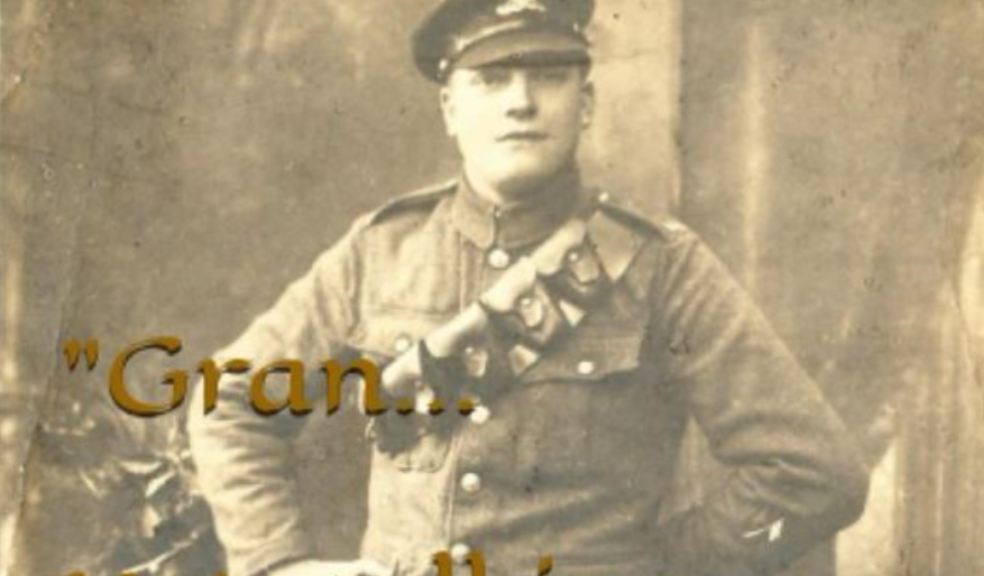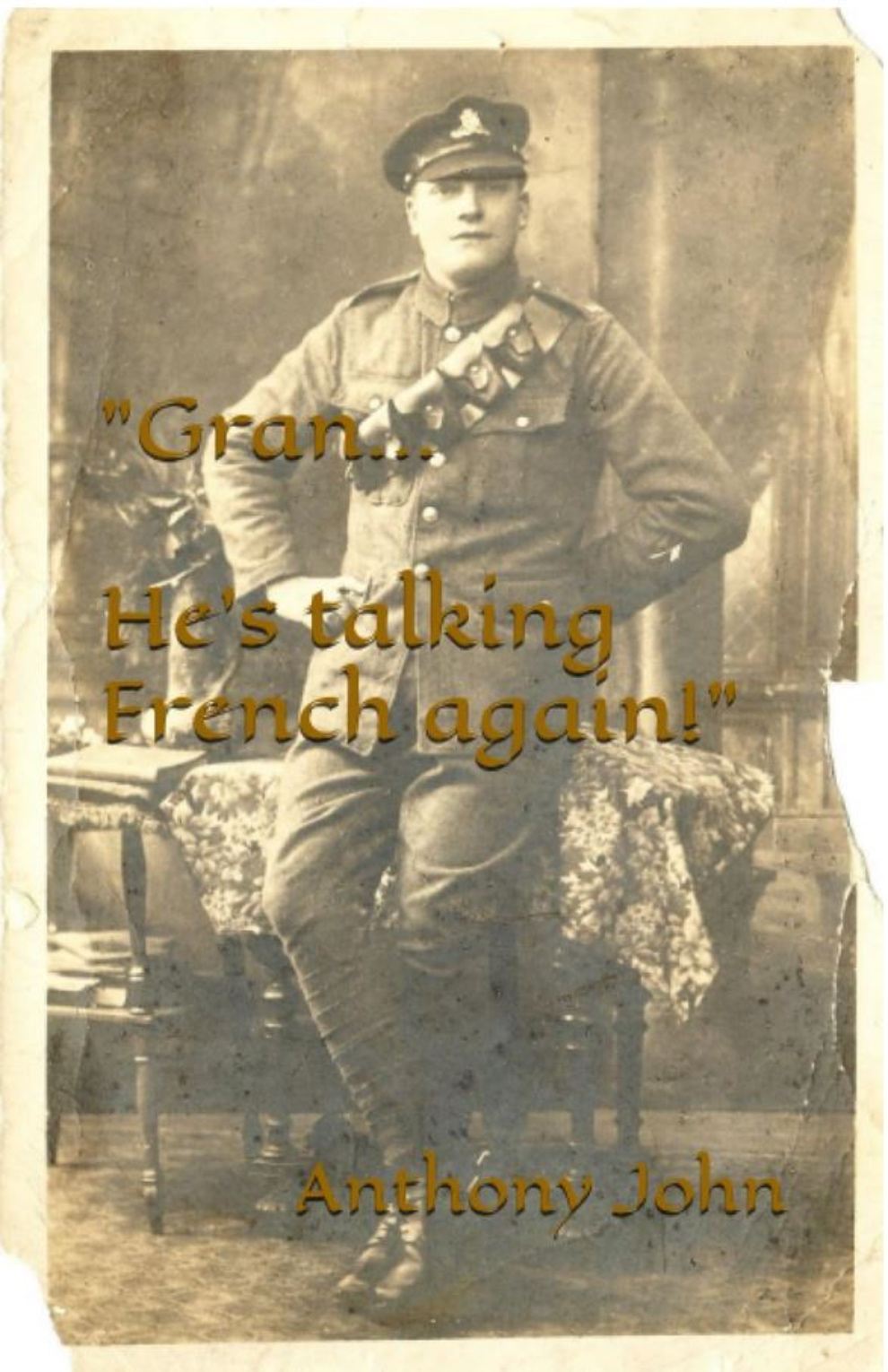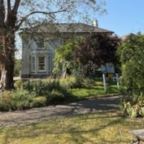
“Gran… He’s talking French again!”
This is the story of my Grandfather, who was born in Exmouth, in Devon in 1898. He was the ninth child of twelve of William Henry Holman, a Senior Pilot in Exmouth Docks. Which was then a busy port in the South West of England, he grew up in those years at the end of the Empire and of sailing ships before modern transport arrived. Anecdotes of his youth include the arrival of one of the first motor cars in Exmouth, the wreck of a large timber ship on the Exmouth foreshore, rumours that an aircraft was coming to the town and a hunt for the daemon Spring Heeled Jack.
As soon as he was able and after a couple of years spent as an electrical apprentice, he joined the army along with tens of thousands of others in 1915, becoming an artillery spotter/signaller in the Royal Garrison Artillery. These men were frequently located in the most exposed positions where they could observe and report back on the shell fall and direct the howitzer fire as it was needed. In this capacity he took part in many battles all across France and Belgium. These actions included Vimy Ridge, Vaulx Hill, Neuville-Saint-Vaast, The Somme, Ypres, Flanders and Hill 70 (Loos).
Between the wars and as a young copper in London he became a founder player and top scorer in the Metropolitan Police Athletics Association Rugby Club, playing in all their inaugural games including several of the annual Coup Poirson matches against the Paris Police. He features quite heavily in the early chapters of “Metropolitan Police R.F.C, History 75 Years 1923 – 1928” by Don Evans. In his career as a police officer he arrested the man who smashed the window of Winston Churchill’s car in Walthamstow and carried a revolver through the Sin Fein uprising of the 1920’s. Later on, in the 1930’s, his skill as a signaller was recognised by the police and he became a very early radio operator in the newly created and legendary ‘Q’-cars, which throughout the second war, were used mainly against organised crime and looting in the blackouts.
The actual book starts however at the end of the 17th century. Through census and church records I traced his line back to the man who would have been my 7-times great-grandfather, who was born in 1698 in Sussex. From him I managed to follow the line continuously to Albert as the family travelled along the south coast to Exmouth where his grandfather eventually settled as a customs officer. The family came via Beaulieu, where the records suggest they worked, throughout the period of the Napoleonic wars as boatmen around the Southampton Water and the shipyards at Bucklers Hard. Wherever possible I have included stories and background about the areas where they settled, and especially about the evolution of Exmouth as it grew to its current dominant position in East Devon, to try and give the narrative more colour and interest.
The last of his forebears was his father and the pilot, William Holman and a chapter is included covering what is known by me and the family of his life, along with some photographs, one of which was taken by Albert himself of his father at the wheel of a Russian timber ship off Exmouth.
In his later life he returned to Exmouth where he eventually became a water bailiff on the River Exe and its tributaries, looking after the salmon fisheries and dealing with poaching or any incidents of pollution from the various factories and paper mills in the area.
About me, firstly, may I say, I have never even attempted to write a book before let alone had one published, so my CV in this respect is a complete blank. Also if this summary is not what you wish then I apologise in advance. Personally, I am a retired IT Consultant who, in the process of clearing out some old papers and photographs found many relating to my Grandfather Albert Edward Holman and concluded that he had a story that was worth telling. The sum total of my writing before this was either at school (Exmouth Secondary Modern as it was at the time) or university where it mostly tended to consist technical papers or experimental reports.
My book is based around the tales and anecdotes which he told to me as a child and which I have woven together into a narrative, along with research and background material providing context and colour. It has to be said that most of the stories he told to tended to be of humorous incidents that occurred in the trenches and the mud of Flanders, although occasionally he would speak of other darker things that clearly still affected him deeply. My research turned up a memorandum booklet, written I think just after the First War from the original battery records, which contained its full history and details of all of the actions it took part in. What this showed me is that every word of the stories he told me were true, as so many of the incidents he describes are also mentioned in that booklet. It can still be found in the British Library where I had the opportunity to study it. As part of my research for this I also spoke to the Royal Artillery Museum Curator, who informed me that there is very little record of any sort regarding the activities and lives of the spotters, who it seems are an almost forgotten group from that conflict. Likewise, there seems to be very little record of the early days of the ‘Q’-cars and their activities in the blackouts.
In terms of readership, it is the story of one man’s life, beginning and ending in a small(-ish) town in Devon. But also of living through the hell of the first war in the trenches and the second in the London blackouts, and of his marriage and life as a young copper in the years between.
I see it as having a local interest element in both Devon and London, as a record of the Great War from an artillery spotters point of view, and of the second for his work in the London blackouts.
It is a little over 60000 words long and includes some 58 or so photographs and illustrations which, where appropriate, are referenced along with any quotations as far as possible according to Oxford Standard Referencing. Wherever possible permission has been obtained to use referenced material. It is currently available on Amazon under the title “Gran… He’s talking French again” by Anthony John.
ISBN: 9798379288358












